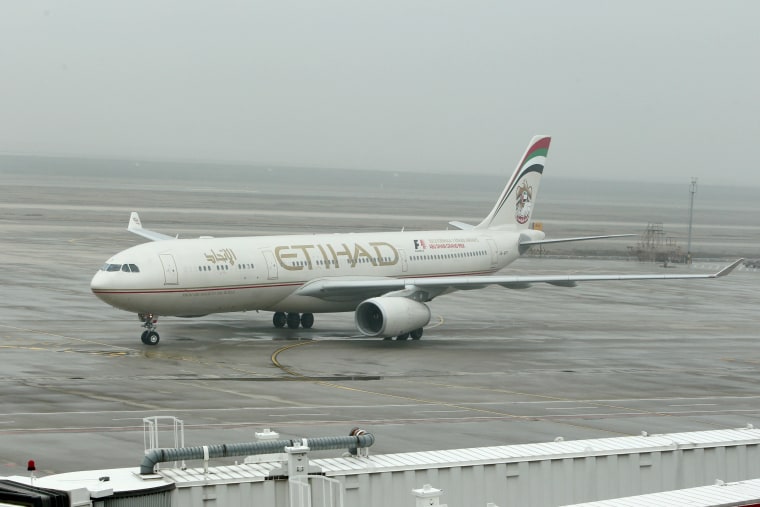Intelligence about ISIS operatives seeking to plant explosive devices in laptops and other electronics was the driving force behind new rules governing inbound flights from 10 overseas airports, multiple U.S. officials briefed on the matter told NBC News.
The officials, all of whom spoke on condition of anonymity, said the intelligence is extremely sensitive and would not describe it in any way.
They would not confirm or deny a detail in a New York Times report that ISIS was developing an explosive that could be hidden in laptop batteries.
Two intelligence officials told NBC News that there is no connection between the announced electronic device ban and the Yemen raid of Jan. 29 in which a Navy SEAL was killed.
A spokesman for the National Security Council had no comment.
Related: Electronics Ban on Planes Not Prompted By Specific New Threat
The new rules — which ban electronic devices larger than smart phones from the cabins of inbound flights from certain airports in Muslim-majority countries — were not the result of any single piece of new intelligence, officials told NBC News, but rather the fruits of analytical judgments based on intelligence collected over a period of time.
Several officials added that longstanding concerns about al Qaeda in the Arabian Peninsula, the Yemen affiliate that has long sought to hide bombs on aircraft, were also a factor.
One senior law enforcement official said the intelligence suggests al Qaeda may be helping ISIS develop smaller explosives — which would be a dramatic new development.
That group’s master bomb-maker, Ibrahim al-Asiri, is believed responsible for the underwear bomb that attempted to take out a Detroit-bound airliner in 2009, and two bombs hidden in U.S.-bound cargo planes in 2010. The bombs never went off.
Related: U.S. Restricts Laptops, iPads in Carry-On Bags From 10 Airports
American counterterrorism officials have previously said that al-Asiri has shared his expertise.
In 2013, John Pistole, then head of the Transportation Security Administration, said that "There is intel that he has unfortunately trained others."
In 2014, the U.S. gathered intelligence suggesting that al-Asiri had trained bomb-makers among a group of al Qaeda fighters in Syria known as the Khorasan Group. Many of that group’s leaders were subsequently killed in U.S. air strikes, but the concerns about cooperation between militants in Yemen and militants in Syria — where ISIS is now the most powerful terror group — remains.

